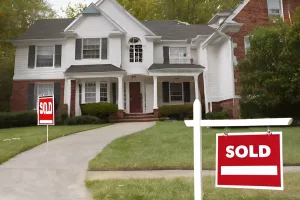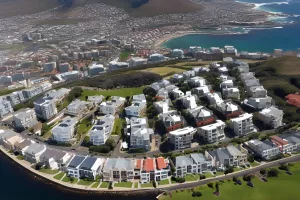South Africa’s property market is a robust platform for homeowners, buyers, sellers, and investors. While the Covid19 pandemic caused significant obstacles for the market, there is still hope for the future. Interest rate reductions later this year could provide a muchneeded boost, and the upcoming twopot retirement system launch could potentially increase household disposable income by a large amount, providing a lift to the property market. Despite the challenges, the market remains resilient, embodying the unyielding optimism and spirit of South Africa itself.
Real estate agents play a vital role in South African property transactions, managing how potential buyers view a property, determining an accurate price, and creating persuasive listing materials. They navigate negotiations, legal compliance, and manage time and stress associated with selling a home. Their expertise guarantees not just a higher sale price but a smoother and quicker transaction as well. In the challenging landscape of the South African property market, having a knowledgeable agent is essential.
Cape Town is preparing for its final property auction, featuring a variety of residential and commercial properties across prime locations within the city. The auction aims to stimulate economic progress and create job opportunities, with a blend of commercial, residential, social good, and educational premises available. The auction is part of Cape Town’s intelligent real estate strategy to extract the highest economic and social value from its assets, and participants can visit HighStreetAuctions.com or contact the Property Transactions Department for more information on participating.
Edwin Sodi, a wellknown entrepreneur, has relisted his luxurious mansion in Morningside, valued at R75 million, for sale after repurchasing it from the Asset Forfeiture Unit. The mansion features five bedrooms, five bathrooms, a gym, a Jacuzzi, and a swimming pool with a deck spread across 4000 square metres. However, Sodi’s alleged involvement in several contentious tenders has led to legal disputes, making the mansion a symbol of the spoils and perils of highrisk entrepreneurship. Despite the controversy, the mansion continues to generate buzz in the real estate market.
Cape Town has become a shining star in the global luxury real estate market with a 12.3% annual growth rate in its luxury residential market. Its prime location near winelands, mountain trails, and Blue Flag beaches, along with attractive exchange rates, has increased the number of prime property transactions. Cape Town’s effective city management is also a significant advantage over other South African cities, making it a steadfast contender among the world’s luxury residential markets. Its success is due to a combination of economic rewards and a vibrant lifestyle that appeals to both domestic and international buyers.





